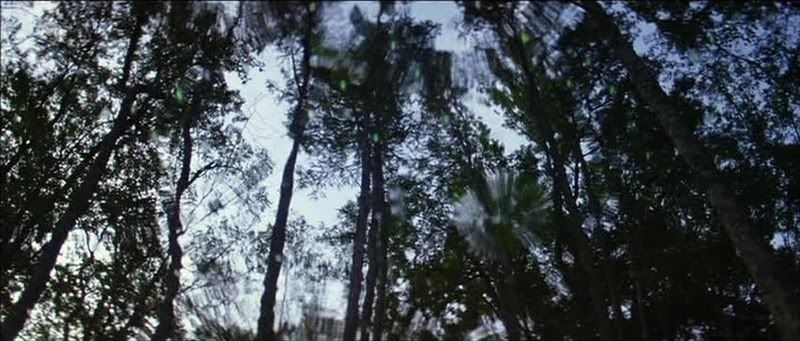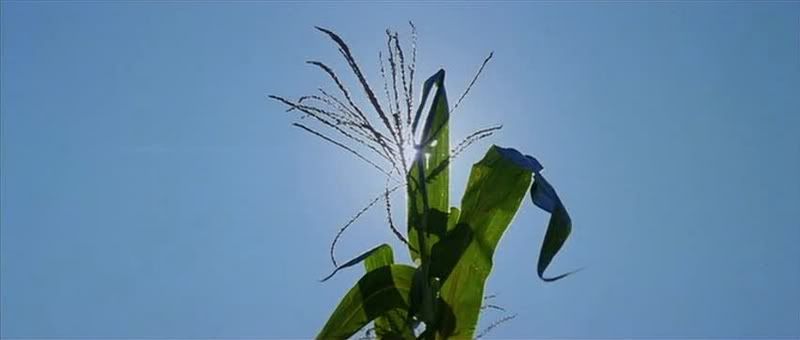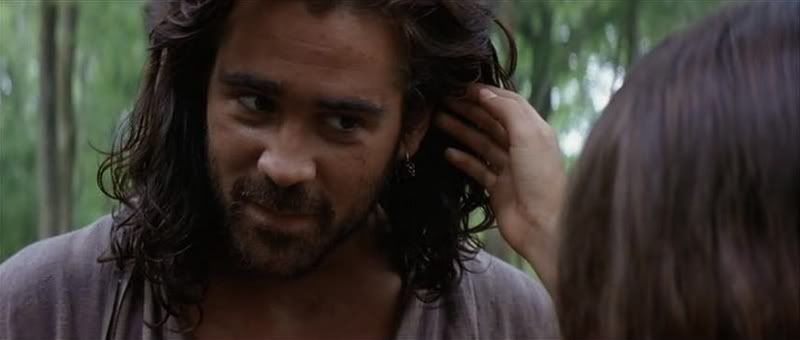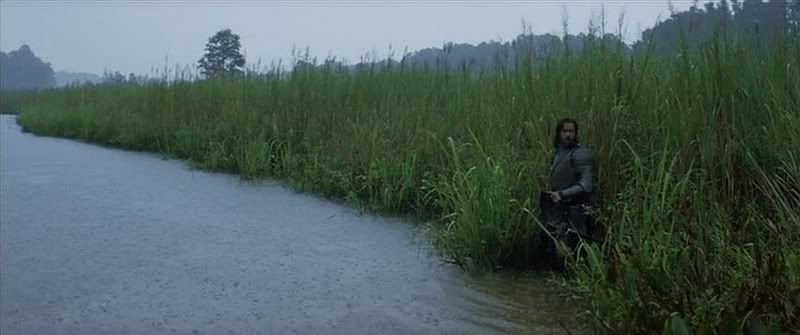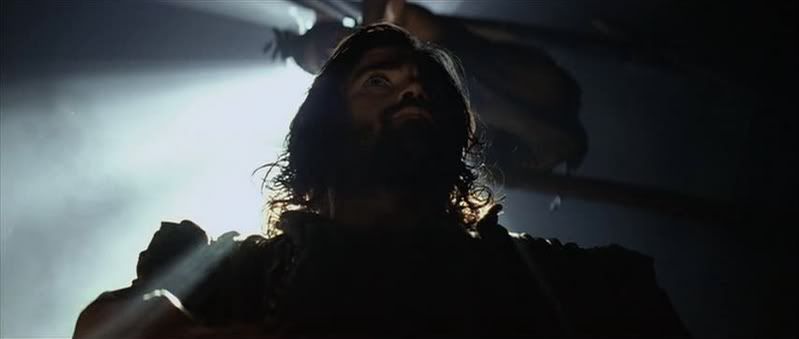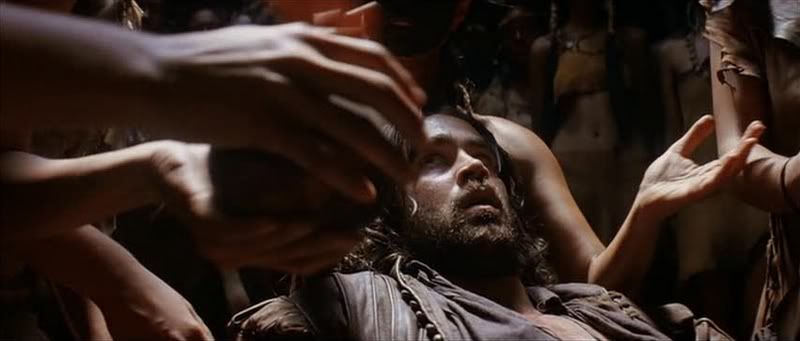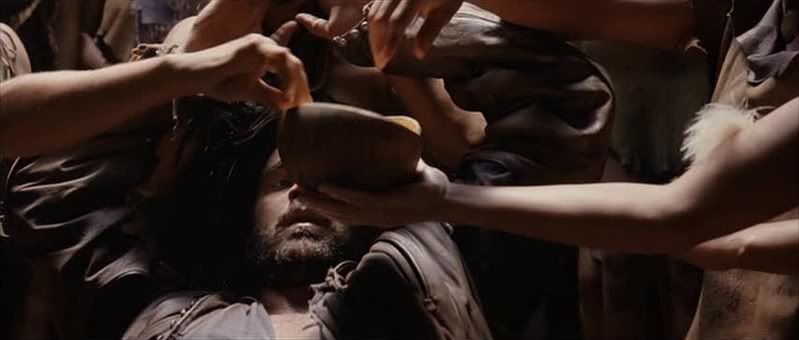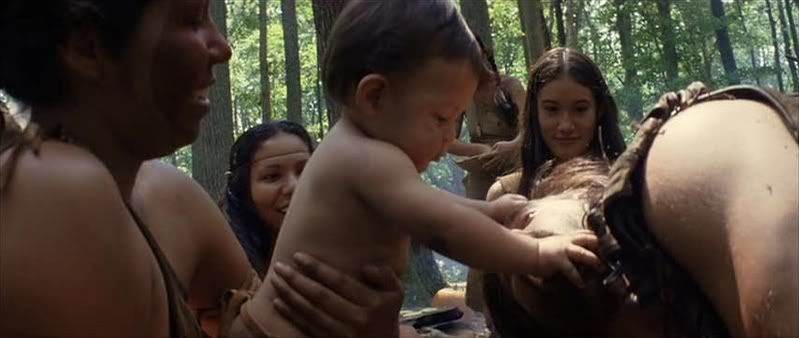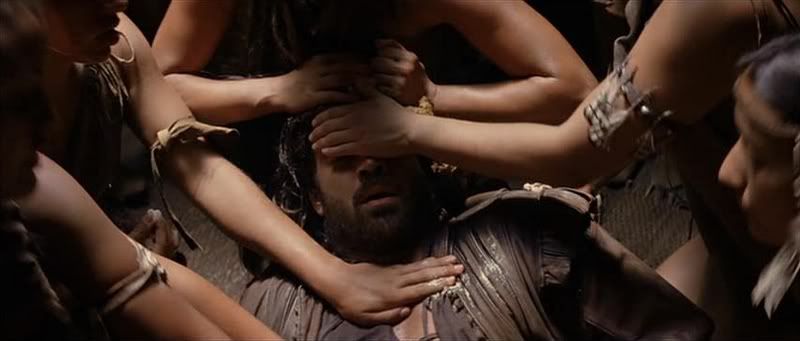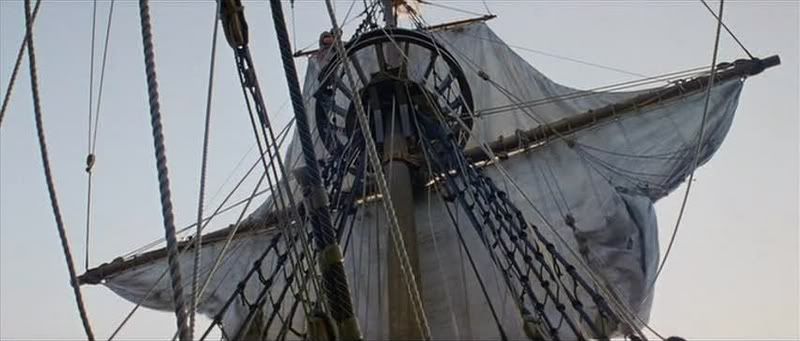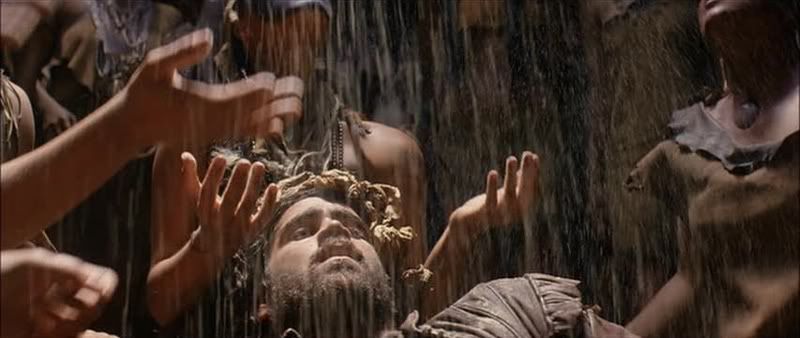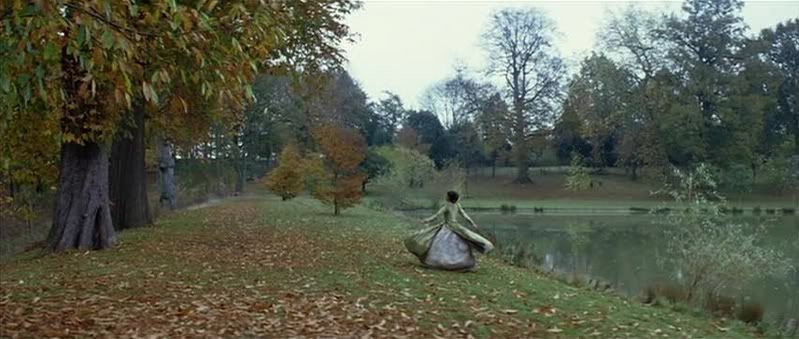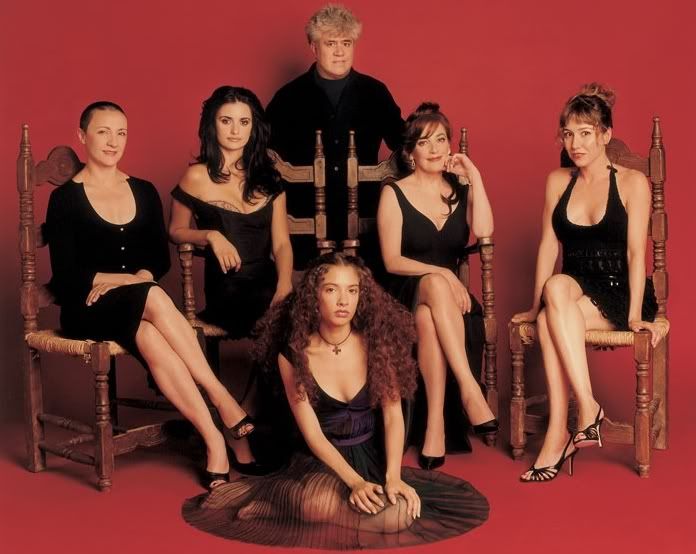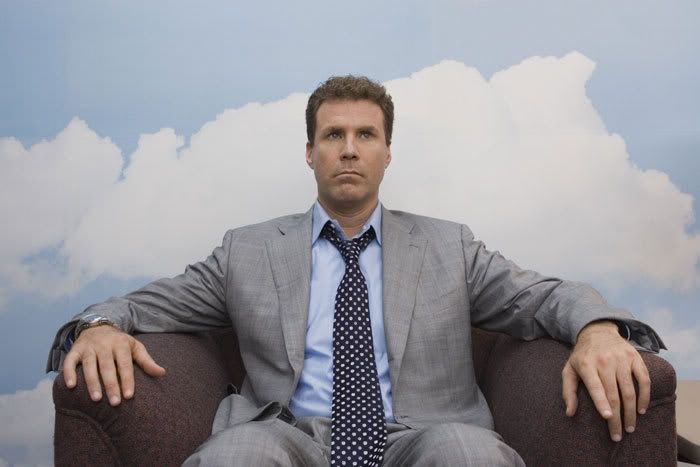Sunday, December 31, 2006
Monday, December 25, 2006
Thursday, December 21, 2006
A brief missive amidst this mess
by Ryland Walker Knight
Phase one of the movie is done: I'm back in California. After a week without internet I'm glad to see the 'sphere still generating. Too much to read with all that's on my plate. There's a little light at the end of this beaucratical tunnel I'm in and I may, cross your fingers, get a loan to pay for my return to school. But it's still a wish and a prayer at this point so I'll have to keep you posted.
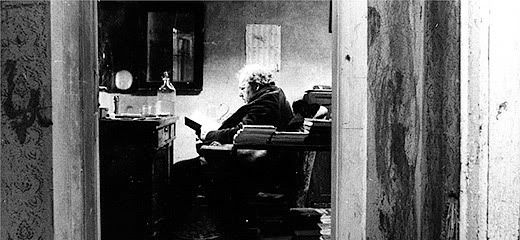
As for the movies: here it is, what I've been waiting for: the ultimate viewing list: Denis Lim's annual poll, now on indieWIRE. I gotta say, it's pretty heartening to see other critics put BLOCK PARTY on their lists. (I'm not alone after all, Steve!) Lim's end-all lists are always a great way to catch up on all the blind spots I've acrued this year (of the top ten I've seen two, of the top twenty I've seen five) what with my Canyon trip and constant pinballing across this wide country. The one I ache to take in is that big bad behemoth, David Lynch's INLAND EMPIRE. I've read so much already I've pieced together a rough cut in my head but I know that will only pale in comparison to the real deal. Really, how can I pretend to know what's in store? All I do know is that trailer did the trick and I feel like I need to see why Laura Dern's crying on the sidewalk, all fish-eyed blue.
The poll also brings to mind how to reconcile my end of the year recollections. I don't like a top ten list but I don't like falling back on an alphabetical list either. I guess I've just grown wary of value judgments in general this year. A star-rating feels inadequate and shorthand & a top ten list feels reductive and consumerist. But time constraints keep me from writing the multiple essays I'd like to finish addressing the movies I did see and grappled with this year so who knows what my contribution will be come January 1st.
All I know is it's been a revelatory year despite a lack of revelatory current releases: the Best movie I saw this year wasn't even made in 02006 (or 02005, as it may be) but 01969, Jean-Pierre Melville's ARMY OF SHADOWS. However, my favorite movie of 02006 remains BLOCK PARTY. How can I not rank the Melville above the Chappelle when I know the latter is flawed and nowhere near the essential classic of the former? I suppose it's a dilemma many critics encounter but let's face it: trivial quibbling. Best to simply write about why I liked both. Honestly, I didn't think I was "allowed" to include Melville's film in my list until I saw Ed Gonzalez & Nick Schager's Slant Magazine 2006: The Year In Film. So hey, all bets should be off. We'll just have to wait and see what I can dish out for a recap. For now, though, I gotta get wrapping -- and prepping, you know, my brain (& heart) for these days ahead.
Stay tuned. And happy holidays!
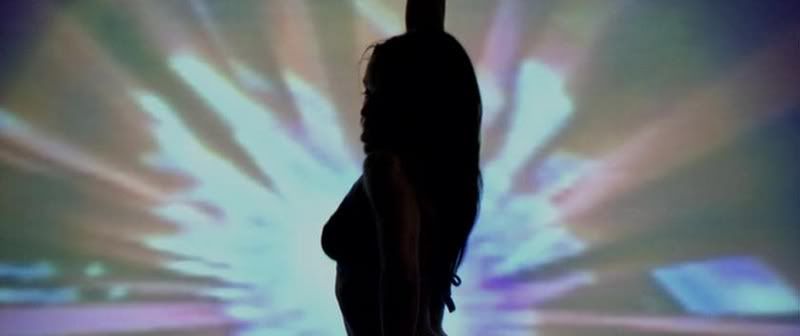
(Couldn't help it.)
(I fill out my ballot in the comments below.)
Thursday, December 07, 2006
Regarding Andy Horbals's Film Criticism Blog-a-Thon, much belated
by Ryland Walker Knight
I wanted to post a sprawling personal history to run parallel my contribution to Matt's call for a site-wide 5 for the Day: Life-Changing Critcism. But work, fatigue, my mom and a 7.5 hour Hungarian movie got in the way of completing the piece. It's still sitting there, waiting to be finished, but in light of my recent headaches with university beaucracies I couldn't find the motivation or emotional energy reserves to throw myself into the essay. Instead I dashed off my list for The House. It, too, seems inadequate and rushed but I'm pretty happy to be a part of such a fun project.
What the list doesn't quite convey is how new I am to this whole criticism racket and how lucky I feel to have popped up in Matt & Keith's radar. And not only that but how rewarding the criticism is to write. It's a much more pro-active process than the fiction writing I still struggle with. Fiction is fun (who doesn't dream up stories?) but the criticism feels much more relevant and useful and, well, life-affirming. Plus, with a blog, and the comments section, you don't feel like you're writing into a void, as Matt said (in a comment thanking Annie Frisbie for mentioning him in her 5/day list). Also, in the Manny Farber interview Keith cites -- and I make a passing reference to -- Farber keeps saying stuff like, "This is what I love to do so don't say I'm not contributing." Criticism is a two-way street.
As evidenced by my archives, I'm not as prolific (1) as I'd like to be or (2) as other renowned, erudite bloggers like Andy or Dennis Cozzalio or Zach Campbell. Nor do I have the background of Keith or Matt. I'm still learning quite a bit, one essay at a time. While I'm probably most proud of my MARIE ANTOINETTE critique/appraisal, I still think there's some value in my first effort on this blog (a positive, apologist take on SUPERMAN RETURNS, which has only gotten better in my brain) for the sheer excitement and enthusiasm in the writing. It's a little fanboy-silly but that's kinda what the movie did for me despite being intensely sad.
I think the fun is what's lost on a lot of readers who think critics are stuffy jerks who go into a movie looking for a way out, an angle to further propagate their singular bent on movies. Or, much worse, they think critics are shill-buffoons like Michael Medved or Richard Roeper. (It should be noted, though, that these men do, in fact, hold real journalism positions and that should be commendable on some level, however misguided I find their film criticism.) The great ones (Roger Ebert included) aren't on a mission, for the most part. For the most part they're wrestling with the picture, too, trying to make some sense from the movie. My first hero, Mick LaSalle, will often have a wildly different take on a picture that baffles me but his reviews are always intriguing because (1) they're usually funny (2) they're well-reasoned (3) it's clear he spends time thinking about the piece and its place in the world not only of criticism but general discourse. In his blog bio he says, "From the beginning, he has been interested in the place where culture, sociology and the movies meet." Not every critic I adore has this kind of take on the movies but given this nugget, it illuminates his entire career and how he can think CLICK is one of the best movies of 2006 and not sound like an idiot. Granted, as I get older I find myself agreeing less with him but I'll still cherish reading his work because even if we disagree, I can understand his take on the film at hand. And he hated CACHE, too.
So what's the value of a critic? A recurring question in 2006, it seems. The simple answer, as far as I can tell, is that we critics are here not merely to guide the public to the best movies (we know that can't happen in a world where PIRATES 2 rakes in such egregious, outlandish sums) but guide our readers through our wholly subjective take on each film. There are aesthetical values to uphold and stand by but in the end we should remember that what we say isn't the end-all: it's the beginning. At least, I hope it is.
[For the blogathon's full table of contents click here.]
Saturday, November 25, 2006
Weed vs. Cocaine
by Steven Boone
The unrated DVD version of Dave Chappelle's Block Party left me with such dizzying mixed emotions, I was damn near seasick. My ambivalence is easy to pinpoint: Even though offstage he appears as shrewd and commanding as the producer of a cross-country, star-packed concert documentary should be… onstage he acts like he's in an after hours nightclub, buzzed on weed and Hypnotiq:
DAVE: I was at urinal and I couldn't help but notice the guy next to me. His dick was so small...
MOS DEF: How small was it, Dave?
(PAUSE)
DAVE: He peed on his balls.
Man, Dave, you invited kids, diverse Brooklynites, straightlaced Ohioans, and a sweet old lady to hear you tell dick and ball jokes? This was weed humor, something you'd have to be temporarily relieved of important brain cells not to find insipid. (And let's not even mention the dumbass story of the industrious prostitute.)
Of all the performers he thoughtfully selected in consultation with Questlove of the Roots, Dave himself seems the least in touch with the audience vibe. Yeah, he gets laughs, big ones at times, because of his natural infectious goofiness. That peanut head and cartoon geechee yowl ("Bam! Pimpalicious!") are not to be denied. But you can hear the groan, feel the disappointment when many of his jokes ignore the elevated, loving, communal mood of the event and drag us into the toilet. I thought of Chris Rock's old joke: "They ain't got nothing in a black mall but sneakers and baby clothes. I guess that's all they think we doing—runnin and fuckin!" Dave's Block Party jokes are mostly runnin and fuckin. In a setting so radically life-affirming, that shit hurts.
Sounds like I'm coming from some tightass black conservative perspective, but this is not a plea for sanitized black art. It's a lament for a brilliant comedian showing poor imagination and failing to take the pulse of a crowd that is clearly Spartacus-devoted to him. (Comedian Tommy Davison once joked about leading the black community on a protest march by singing Al Green's "Let's Stay Together." It was supposed to be a joke, at least. The vision of an artist using his instruments to break chains puts a chill down my spine and a lump in my throat.)
I wonder if Dave ever saw Rufus Thomas in Wattstax. Thomas' performance at that landmark concert in Watts, Los Angeles (the black Woodstock, the '70s Block Party) is a study in the power of pure charisma. The paunchy, balding soul jester grooves bowlegged onto the stage with his white sideburns, matching ivory go-go boots, lavender shorts and superhero cape. He coos to the afroed, platformed stadium crowd of thousands, "Ain't I'm cleeeaannn?" It ain't a question. The crowd adores him, this middle-aged fool, this lunatic. But they also respect him. With an authority I haven't seen in any U.S. president, he works the masses into a Soul frenzy with Breakdown, orchestrates a dance riot on the stadium field to The Funky Chicken, then manages to direct everyone back to their seats with a combination of G-rated Dolemite-style jive, comical rhymes and "Power to the People" exhortations. Nobody gets hurt.
That's the kind of emcee I expected Dave to be, a fool but also a leader. In Block Party, when not officially performing, his intelligence and humanistic impulse shine through. He reaches out and influences folks as effortlessly as Thomas. He shows genuine pride at booking the radical rap group Dead Prez—the sonic/social heirs to Public Enemy's righteous noise.
So why does he chose to squander this power onstage with material a middle school delinquent wouldn't carve into his desk?
I suspect a lot of black comedians of Dave's generation (which is mine too) have taken the wrong lessons from their gods, Eddie Murphy and Richard Pryor. For a moment, comic brilliance seemed to go hand in hand with being ready to ejaculate the terms "bitch" and "pussy" on cue. But Pryor and Murphy learned, as their careers mellowed/waned, that they were adored for their imagination, vulnerability and daring, not for their shit-talking. The "raw" talk that Eddie so admired in Richard wasn't his rudeness but his honesty. Unlike Murphy, Chris Rock and Dave Chappelle also latched onto Pryor's stealthily conscientious politics. Chappelle's Show's race-obsessed sketches often play like outtakes from the old Richard Pryor Show—supported by the fact that a key collaborator on Dave's TV opus is Pryor's incendiary former writer, the brilliant Paul Mooney.
But the biggest differences between Pryor and his spawn are his sobriety and his sense of urgency. While Rock's and Chappelle's styles of delivery have evolved from sedate and measured to cartoon manic as their audiences swelled, their political intensity seems to have gone in the opposite direction. "I was in South Africa the other day," Rock would calmly, flatly mutter onstage back in the late '80s. "Or was that Boston?" Boom. A cheap shot, but loaded with thought. Now Chris screams at the top of his lungs about hack comedian topics du jour. Chappelle, who prides himself on being the least ambitious or politically savvy in a family of D.C. intellectuals, nevertheless makes trenchant social observations as if it's in the blood. Yet he prefers to lodge his grievances with Power in the guise of an aimless stoner whose goal is just to get by and get high. This persona's problem with The Law is simply that it sometimes puts up an obstacle to his good times. All the inner city horrors he describes along the way provide grotesque comic window dressing, like Pryor's winos and dopefiends. With Pryor, though, the horror lingered in memory long after the laughs.
Though he isn't the emcee at Wattstax, Pryor does preside over the event and gives it hilarious, piercing context. Stuart intercuts between the concert, street interviews with Watts residents and Pryor's color commentary, filmed in some black studio limbo. Only Pryor is visible during his segments, but you can hear others (camera crew? entourage?) dying laughing through his merciless riffs. Pryor's jabs at white supremacy and police brutality harmonize well with Chappelle's offstage banter. The distinction between their styles, their eras—between brilliant clarity and addled brilliance—is evident in the eyes: Dave's are sleepy; Richard's are startled saucers, narrowing down only to express rage.
Pryor may have done boxcars of cocaine in his time, but whatever that did to his system, it didn't dampen his fire onstage. Whatever Dave is smoking, it isn't helping him reach the bar Richard set for performers of radical imagination—a bar that at one time he seemed capable of clearing and re-setting beyond anybody's expectations.
Images from Dave Chappelle's Block Party: Unrated Version (Universal) and Wattstax-The Special Edition (Warner), both on DVD.
Thursday, November 23, 2006
Volver
For all the expansion to be enjoyed in Pedro Almodóvar’s recent string of excellent films, his newest, Volver, is his narrowest effort since 01995’s rare misfire, The Flower of My Secret. After laboring with, and firmly executing, Bad Education’s labyrinthine noir (its convolutions span three decades of lies and betrayals and trannies and heroin) it’s fitting Pedro would scale down to a story that, at bottom, only needs five principal sets and five principal characters. Even his broadened, widescreen palate is compressed within the frame: certain close-ups of his luminous cast are shot with such long lenses that a minor movement by the actress fuzzies up her ears or her perfectly mangled coif like a distant spotlight straining to keep a stage actor lit. This technique reflects the precision one has come to expect, and take for granted, in each new joy Almodóvar gifts us.
[To read the rest of the review, click here, and you will be forwarded to The House Next Door for the full article.]
02006: 121 minutes: written & directed by Pedro Almodóvar
Wednesday, November 22, 2006
Goodbye Robert Altman, Hello Béla Tarr
by Ryland Walker Knight
Yesterday, around noon, I finished my mindless temp assignment early and went into my gmail to print off a timesheet. There I found Matt's email about Robert Altman's passing. My brow furrowed and my head cocked to the side. This is real? Wow. That's sad. I didn't have time to process as I was using my boss' computer (they didn't have one for me, I was constructing press release packages all day). So I left the office and walked a couple blocks to the Elliot Bay Book Company in a haze, aimless, not really processing that news about Altman. Luckily, I found the store and bought Allison an early Xmas present, which I immediately regretted having gift wrapped. The wait for the bus was interminable and windy; I drained my Nalgene bottle.
Riding through downtown I stared out the window, instead of reading like usual, and thought about what I might offer in eulogy. We turned north towards Seattle Center and the sky was black behind the Space Needle, crowded by a massive, ugly thunderhead. The rain didn't start until we were in Wallingford, turning onto 40th Street, and only got heavier by the time I paid my $1.25 and exited the bus holding my raincoat over the bag from Elliot Bay. I ran down Sunnyside and up the driveway and through the door, down home.
After peeling my layers and hiding the gift in a drawer I, naturally, went to the computer, to the internet, to Keith's moving memorial over on The House. I realized I didn't need to offer a summation of his life -- it had been done by so many already -- and offered a comment with "a few moments that illuminated him for me, raising him above the throwaway label of 'condescending hauteur':
1. First, of course, is McCabe telling his Mrs Miller "I've got poetry in me" only to be shot dead in the snow while she tokes opium in the hazy den down the hillside. Perhaps the most genuine of saddest film moments I've witnessed.
2. Lyle Lovett's resigned apology in SHORT CUTS. While it did not bowl me over as in the Carver story that inspired the film moment, Lovett's (non-)performance underscores both men's tact of taking on life. Sometimes, you swallow your monster pride and offer a small, good thing to those in need. SHORT CUTS is no small matter but there is a heart underneath its bleak posturing. I remain faithful to the Carver works but the film feels a precise conflation of the two artists, negating any niggling by the literary fan in me. Plus, the cast is damn impressive.
3. The humor of Shelly Duvall's skirt perpetually caught in her car door in 3 WOMEN. Oh how Stanley spoiled her...imagine the roles she would have had had she not been subjected to such treatment on the set of THE SHINING. Then again, we wouldn't have the same SHINING we know and love today...but that's besides the point here. The point is there was a time when her flippant line readings meant something and this detail, observed again and again, illustrates her abilities to portray a dolt with precision and passion and empathy. Forget Pinky, it's Duvall's Millie that loses this battle."
I was sadder still. It surprised me how low I felt. I've never been the biggest Altman fan, as friends know, but recently I've acknowledged he was, as Baudelaire would say, a true poet, and we're all poorer for his passing. Now I just have to make good on that and watch CALIFORNIA SPLIT and THE COMPANY and maybe re-watch NASHVILLE at some point soon. But, first, I will undoubtedly watch MCCABE again and surrender to my emotions.
I walked to my other job in the misting rain with two hoods ontop of my A's hat, my eyes on the ragged pavement. It felt all too appropriate. Then I entered the Metro and saw the fresh delivery of The Northwest Film Forum's new Winter Schedule. Right on the front page is a splash image from SATANTANGO -- the same one that adorns the cover to Facets' DVD release (due out Nov. 28th, for those in the know) -- announcing the upcoming series, The Harmonic Resonance of Béla Tarr. You gotta be kidding me! It was my own early Xmas present. I will be able to see, at the least, SATANTANGO in a cinema auditorium for the first time. There is a snag, though, of course. My mother is due to arrive for a visit on those three days it is playing. She may already have plans to hang out with my godbrother on Saturday, so it makes sense to forfeit that day to the endeavor, but I do want to spend time with her as well, having not seen her in a year. The trick will be to convince her this is necessary for my return to school and my plans for an Honors Thesis all about sculpting in time
. (Whadduya say, Mom?)
I was so giddy at this news that I didn't let the scheduling of yet another Mizoguchi retrospective after I leave another city get me down. There will be a time and a place for me to devour his oeuvre. It even made me forget about how saddened I was by Mr Altman's death until I brought it up with Mike, who just moved and does not have the internet at home yet. I decided to forgo sadness for the remainder of the shift and enjoy those around me. That's what life's for, right? Right, except for when there's a seven hour Hungarian opus to take in...
Monday, November 13, 2006
Stranger Than Fiction
Will Farrell is Harold Crick, an IRS auditor with an obsessive compulsive knack for mathematics. Emma Thompson is Karen Eiffel, a neurotic and depressive writer who cannot finish her newest novel. Harold Crick is the protagonist of Karen Eiffel’s newest novel -- supposedly an unassuming everyman, living his everyday life in an anytown, unaware of his fate. But he is fully aware because he’s been hearing Eiffel narrate his day to day torpor and she’s spot on with every minute detail, like the sound of folders pulled across one another mimicking soft ocean waves cresting on a beach. Her novel is moot if he is aware of his “imminent death” because that hideous phrase “little did he know” is simply wrong: he knows plenty. STRANGER THAN FICTION is a movie, confused about its intent and clumsily executed at that. Zach Helm is a screenwriter, clever and witty and myopic. Marc Foster is a director, quick to telegraph the screenplay in an effort to streamline while undermining his committed cast’s roundly good performances with borrowed tricks and a meticulous art direction that serves only to distract.
[To read the rest of the review, click here and you will be forwarded to The House Next Door for the full article.]
02006: 113 minutes: dir. Marc Foster: written by Zach Helm
Thursday, November 09, 2006
Disposable Youth
by Michael Strenski
Regarding the name change: goddamn right it is. Nothing is heavier than a crate of records. I am moving next week and I am not fazed by lifting a bed or shelves worth of books, it's the LPs that bring me nightmares. So does the saxophone solo in the Carpenters' "Rainy Days and Mondays", which I happen to be listening to as I type this. It's brief but just long enough to register annoyance and then linger for a millisecond more. Coincidentally, said solo is on vinyl. So if I break it down, the groove containing the saxophone will contribute to the heft of my record collection when I pack it up. My fears are compounded. I am an arachnophobic clautrophobe trapped in a closet full of tarantulas.
Speaking of fear, the latest issue of Wired has a story on what they call the New Atheism, a loose-knit group of scholars, writers and magicians (?) that feel that faith in a god needs to be more fiercely challenged in this day and age. It describes how this group is much more willing than people in the past to challenge someone's religious beliefs. "Religion is not only wrong, it's evil" is the thought behind the article. First off, I tip my hat to Wired for not only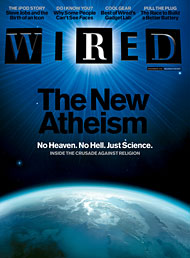 printing such a story, but putting it on the cover (and what an awesome cover it is. Check it out). Atheism is such a hush-hush topic, most people are too afraid to step on anyone's toes. It was incredibly gratifying to see a major publication going forward with a story that would go against the grain of most of civilization.
printing such a story, but putting it on the cover (and what an awesome cover it is. Check it out). Atheism is such a hush-hush topic, most people are too afraid to step on anyone's toes. It was incredibly gratifying to see a major publication going forward with a story that would go against the grain of most of civilization.
The article for the most part though was a huge letdown. The writer Gary Wolf turns the ideas behind New Atheism into a personal quest for a label he can get behind. Throughout he brings himself into the story, for example when he visits an evangelical church hundreds of people deep and is actually somewhat moved, or a monthly meeting of atheists that barely scrapes fifty that he ducks out of when he feels that the struggle for community gets a little pathetic. In the end, after detailing the purpose of New Atheism (basically humans need to wake up and stop investing time and energy into the fantasy that is religion, for it is detrimental to our future), he flat out calls the New Atheists and their ideas absurd. For most of the article he sounds lucid and in control but by the end his logic falls out the window and he seems to be backtracking, for fear of.... stepping on anyone's toes, which is the whole point of the article. What is wrong with purporting the truth? I know, I know, the idea of God is unprovable, but I don't see why in a nation where fundamentalist Christians run the country and where each and every one of us regardless of our religion or lack there of are constantly subjected to faith solely of the Judeo-Christian variety, where people claim to be agnostic simply because they don't want to offend or claim to know everything, why shouldn't people speak up???
I stopped believing in God around the time that I realized that Santa Claus was a sham. I was really young. I played along for my little brother's sake and continued to pretend that Santa was the one that ate the milk and cookies and left the big boxes under the tree. I didn't want to destroy my brother's childhood. This is different. We are adults now, we should be ready to defend ourselves. I have usually shied away from in-depth discussions regarding my lack of faith mostly because I know that there is very little chance of changing one's opinion on such a topic. It is so ingrained in people from birth that it becomes harder and harder to shake as the years wear on. But, and this is something that has been slowly dawning on me for awhile now, there is still that glimmer of a chance. I am not going to put anyone down or tell them they're stupid if they believe in God, some of the people closest to me in my life have some sort of faith and although I do not and cannot agree with it, I am not going to love them any less. I just think that atheists should stop hiding in the shadows and come forth with their opinions.
At times the Wired article makes it out to seem like if you come out and say that you are an atheist or are willing to challenge someone's ideas or beliefs then you are automatically a first-rate asshole. That's simply not true. Why can't one respectfully and civilly engage in discussions regarding thoughts and beliefs? I think we need to start with those agnostics.
Another thing regarding the name change, my boyfriend and I were talking it over whilst watching "Hedwig" for the umpteenth time and eating Popsicles, and we decided we preferred the old title more.
Regarding the future
OR
Twistin the night away!
So here we are, a day early, with a new name and address for the blog--and a new House and Senate for our country! Dance party!
I'm off to the San Juans for the weekend but early next week look out for a review of STRANGER THAN FICTION, which will also be posted on Matt Zoller Seitz's ever-impressive & ever-expanding blog, The House Next Door, where I've been offered a semi-professional, weekly outlet for my attempts at criticism. (I plan to cross post the reviews here, too, on Vinyl Is Heavy, to keep production up at "home" as well.) I'm kind of third string right now (I don't get to review THE FOUNTAIN or CHILDREN OF MEN for The House so keep checking here for those) but there should be some good ones ahead, like VOLVER.
Take care. I'll be watching whales, not movies, for once, and trying my best to stay warm in the yurt.
-- Ryland Walker Knight

Monday, November 06, 2006
Regarding a name change
by Ryland Walker Knight
For a while now I've been teased about the name of this blog. It was an inside joke to begin with and now it seems like quite an obvious joke to any strangers. Yes, there are only young men participating in the erratic posting.
Anybody who may visit this site should be forewarned: the name of the blog, and its address will be changing at the end of the week. A Sleep Over will become Vinyl Is Heavy, appropriating the title from my abortive attempt at a first novel all about media-inlfuenced, angsty young adults.
To a new, brighter future with less sexual innuendo and, hopefully, more regular posting.
Friday, November 03, 2006
Borat

by Ryland Walker Knight
The stage was set: viral advertising and google videos as primers, I was ready to go on the sexytimes journey across America with wild and crazy guy BORAT, Sascha Baron Cohen's greatest invention. I had committed to staying up late for the midnight staff screening. I got a good ammount of alcohol in me, enough to bouy me through the short running time. The auditorium was packed with drunk theatre employees. After a half hour of movie trailers and Stella Artois ads the movie started and I was laughing immediately. The theatre was howling. In another half hour I was asleep.
02006: 84 minutes: dir. Larry Charles: written by Sascha Baron Cohen, Anthony Hines, Peter Baynham & Dan Mazer from a story by Sacha Baron Cohen, Peter Baynham, Anthony Hines & Todd Phillips.
Sunday, October 29, 2006
Snakes on a Plane

by Ryland Walker Knight
I was on that bandwagon from the beginning, spending quite a bit of time in the early part of the year helping to hype this B-picture beast. The excitement faded, as expected, and by the time my Grand Canyon adventure was over SNAKES ON A PLANE was low on my priority list. Also, I knew I wouldn't be seeing the movie opening night amongst a giddy crowd. So I approached last Wednesday night's screening with a little trepidation. Luckily a lot of college kids came out and paid $2 to see the movie with me and my girlfriend and Derp. We laughed a lot and had a grand time. There's a lot of slack direction, especially in the first act where it looks like the filmmakers shot each scene once from maybe two setups. And there's a few ingratiating "types", like the haughty, impatient Brit. But there's also Sam Jackson. Late in the film when the AC onboard the plane fails, a passenger tells Jackson, "It's getting hot in here," to which he shrugs, "I'm from Alabama--hadn't noticed." That line reading pretty much sums up the movie's tone: You came here for fun, now enjoy yourself, fool. And I did. It could never live up to the internet frenzied buildup but it delivers when you're surrounded by a whooping, cackling rowdy audience. And by the time Jackson gets to say it, that belly laugh excitement-release is, well, enough for me to say I can't wait to go to sold out midnight screenings as often as possible.
02006: 105 minutes: dir. David R. Ellis: written by John Heffernan & Sebastian Gutierrez
Friday, October 20, 2006
Marie Antoinette
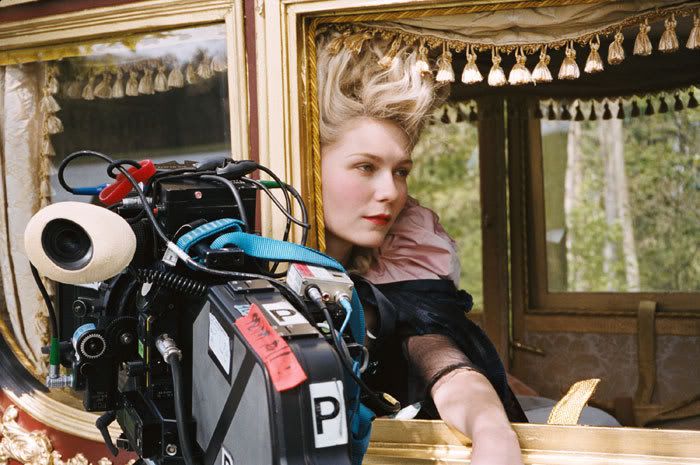
by Ryland Walker Knight
It certainly seems easy, and chic, to dismiss Sofia Coppola's career as a film director, amping up her apparent "poor little rich girl" persona as a critical debunker. But envy is not an analytic argument. Envy is a facile batting of the eyes, as supercilious as all the shoes and cakes and gowns and champagne a young princess could ever hope to cloud her life with. Of course, Sofia's life is enviable to legions of hip, would-be jetsetting shoppers with funny money to burn. But that's not what the film hopes to inspire in its audience, even if it meets those ends. MARIE ANTOINETTE plays not as polemic history lesson, as many would hope (the politics are sublimated, mostly kept off screen), but as a near naked autobiographical justification for downright girliness and Coppola's latest defense for the vitues of adolescent vaccum ennui.
The best lesson Ms Coppola has gleaned from her famous filmmaker daddy was "get the best editor you can--they'll save you every time." And often a good editor helps add to the allure of an auteur, garnering somewhat undeserved acclaim for the director. Many directors live and die by their editors (Scorsese) and it's no different for the Coppola clan. For the patriarch, on his best films (those four from the 01970s), this was the unparalled Walter Murch, who also lent a master touch to each film's sound design. For his daughter, this helping hand is the undeniably talented Sarah Flack, whose skills have helped elevate a number of films, including Sofia's previous film, LOST IN TRANSLATION. The elliptical nature of both films is a clear sign of this editor's influence. In Coppola's first film, THE VIRGIN SUICIDES, the narrative was weightless, unbouyed, willing to drift from memory to memory; it played like a series of idea fragments caught surreptitiously and organized like jigsaw. LOST IN TRANSLATION sought an ennui cloud nine by way of Antonioni and the results were highly successful until the last minutes when the core relationship was no longer about isolation but a vague romantic possibility Scarlett Johansson's lonely naif Charlotte dreams up (and acts out?) with Bill Murray's washed up movie star Bob. All the ellipses within the film hit the right notes, matched by its perfect soundtrack, to carry you in the film's rhythm but the ending fails. The Jesus & Mary Chain's plastic rock can almost save it, but not quite: a final shot of Bob's limo winding along Tokyo's freeways is impressive, and evocative of the previous theme, but that whispering on the crowded street was a cop out. Unfortunately, the trend continues in MARIE ANTOINETTE. After an hour and a half of staggering beauty the film falls in on itself with forty-five minutes left. Its final handling of the titular royal's demise is another hollow cop out one cannot forget (or forgive) despite an indelible, inspired parting shot.
The film's opening may be its best moment, validating any worries (or giddy excitements) one might have concerning the New Wave & Post-punk soundtrack: Over Sex Pistols title cards, Gang of Four clang into gear singing, "The problem of leisure/What to do for pleasure" before we get our first image of Marie reclining for a pedicure, eating cake and taking a moment to smile at the camera. Film logic tells us this scene comes from Marie's present, an Austrian castle, but the costuming (including her hairdo) and setting tells the reflective viewer this is from the Marie's near future as queen of France. The chair Marie lays in echos the bathtub we will see her take solace in later, as do the cakes and pedicure prefigure the stylistic shopping orgy played out to Bow Wow Wow's never-subtle "I Want Candy" anthem. And the look she gives the audience is just the first glance at empathy: there are so many closeups of Kirsten Dunst emploring the camera to love her that I lost count.
Much like the diorama worlds Wes Anderson dreams up to stuff his wide-angled frames, Ms Coppola's films offer a hermetic landscape, exemplified to its utmost with her version of Versailles. Populated opulence, the French court remains oblivious to the last, happiest partying, shopping, indulging; the decadent solipsism never flags. We're trapped there, too, surrounded by Coppola's reverence for the look of the period, if not its history. The film is carried along not by any plot but sheer visual splendor, eager to celebrate the big budget costumes and real palace sets cinematographer Lance Accord so deftly captures, placing our princess in a gilded cage, color coded to her mood.
Dunst plays Marie as naive, reading her lines flat as if reciting from a mental list of the right & wrong situational sayings. She comes to life when unscripted, partying or playing with her daughter, further fostering the rigidity of the court. It comes as no surprise that the only members with any palpable vitality are King Louis XV (Rip Torn can growl all he wants all the way to comic pantheon) and his sultry, black sheep mistress Du Barry (Asia Argento was born to play hookers, I think). Which isn't to say the rest of the court is poorly acted, in fact plenty are good performances. The most surprising is Jason Schwartzman as the effete dullard of a punchline, Louis XVI, who would rather hunt and eat than plow his hot little new wife like everybody else wants to. But the best acting (aside from Argento) is done in two minor, non-court roles by two enormously talented actors inconcievably underused: Steve Coogan as Ambassador Mercy and Danny Huston as Marie's brother Emporer Joseph of Austria. Coogan pops up on cue throughout the film as Marie's sage shoulder to lean on but Huston is onscreen for maybe five minutes and blows away the entire cast. While not as august and imposing as his father, Huston uses his size to fullest effect: he never appears a bully but you can see the cower in Schwartzman as they walk side by side. But then, as soon as he swoops in to delight, he's gone.
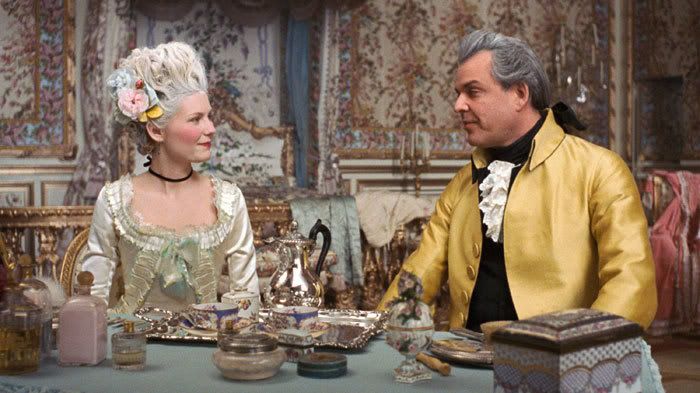
There's another sustained twenty minutes or so before Marie withdraws to her personal haven at Petit Trianon with her daughter in tow to tend an odd flock of assorted farm animals--and fuck a pretty boy Swede--but once that sets in, its earnest naivete wears thin. The soundtrack starts drawing attention to itself when The Strokes yell "I want to be forgotten, and I don't want to be reminded--so please don't make this harder..." and the clumsy portrayal of Marie as fierce wife instead of foolhearty mother near the close doesn't help Coppola's cause. By the time Marie bows to the obfuscated, angry mob outside her veranda--and silences them!--we've practically checked out, all the pleasures beforehand forgotten in this haze of mixed-confused-tenuous metaphors and arch characterizations. When she says, "I'm saying goodbye," riding away from Versailles, it's hard to believe Sofia will ever say the same to her glamourous life. But then, why should she? She doesn't have to worry about a populace storming her mansion and demanding her head. Maybe that's the problem we're faced with: there's not enough responsibility at stake in this plastic world of celebrity fucking where trash is culture; even for the overly educated who remain addicted to the boob tube as a barometer, to say nothing of the internet and blogosphere.
By engaging Versailles as ignorant bliss, marred only by society squibblings, and populated by children of prominent Hollywood figures, Coppola aligns herself with the royalty against her will. Are we to infer that under societal constraints Sofia has backed herself into a girl's only corner where all she knows how to do is shop and party? Or is this a broader critique, taking aim at Hollywood in general? The film is, in the end, about youth conforming to adulthood's ugly reality, carving out a personal Eden, however temporal and inconsequential, amidst the whirlwind of accusatory looks and letters adults throw at the young. That playtime ends so abruptly should come as no surprise but this rejection of politics (& violence) forces the viewer to step back and reevaluate. There are better films tackling this phenomenon, Coppola already made one with her first effort, but MARIE's flaws help it raise questions for its target audience better. The point is, according to the film (and I suspect the biography from which Coppola adapted her screenplay), Marie and Louis were not ready to grow up when asked to--they needed more time--and with a soundtrack culled from Coppola's childhood we can only guess this is how she has felt. I can't really sympathize with growing up the daughter of a legendary American filmmaker and following in his footsteps to become another world-famous director but I think there is a generational arrested development at play today. We can't ignore the real world forever--there's a time to grow up, like now--but for some (like the cineaste) it's been a hard road out of solipsism into our modern age. Chances are this cautionary bent is lost on the ones who need it most (Straighten up and fly right, Super Sweet 16's!) but nevertheless it will remain an elegy for this generation of hermetic hipsters whose hair hangs greasy over lined eyes instead of standing tall like bouquets.
02006: 123 minutes: dir. Sofia Coppola: written by Coppola, based on Antonia Fraser's Marie Antoinette: The Journey.
[Fans of Huston can look forward to him playing Orson Welles next year while Coogan devotees can salivate at the prospect of an Alan Partridge feature. Also of note: Schwartzman has a writing credit to go with a co-starring gig on Wes Anderson's new movie, THE DARJEELING LIMITED.]
Posted by
Ryland Walker Knight
at
11:44 AM
4
grooves
![]()
Labels: criticism, Danny Huston, rwk, Sofia Coppola
Wednesday, October 18, 2006
Burn Out/Fade Away
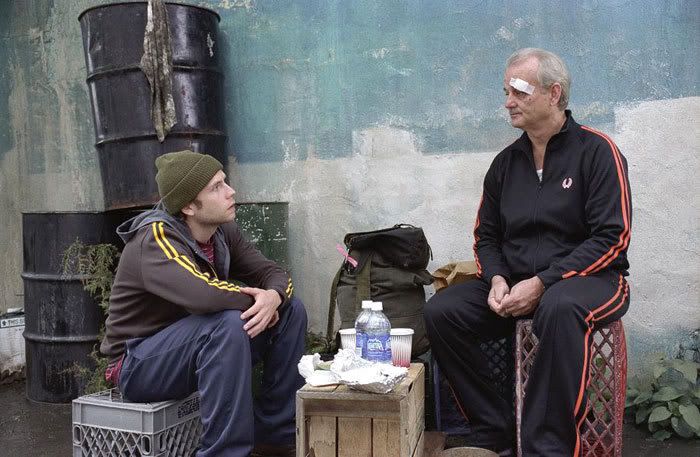
by steviesellout
I watched BROKEN FLOWERS for the second time last night, and aside from a few things that bothered me a bit this time around (the fact that Bill Murray plays a "Don Juan" who happens to be named Don Johnston struck me as sillier and more pointless than it did before, and the “stalker in a Taurus” one-liner awkwardly standing out as the only joke of this sort in the movie), I still liked it. It's not great--I think it was one of those films that people wanted to like more than they did, the idea of Jim Jarmusch and Murray working together perhaps better than the thing itself. Still, I thought it was a good, small movie, with everyone's favorite late-career-success-story doing pretty much exactly what we've come to expect from him: turning in a performace so minimal that to call it "extremely understated" is, well, an extreme understatement. As tends to be the case with the second time around, the things I found to like and dislike about the movie this time were the small things, which I had either not noticed the first time or that had faded from my memory in the interim. Christopher McDonald's performance as the husband of one of Don's exes is amazing in that he manages to somehow get the used-car-dealer-ness (he's a realtor, which I suppose may or may not be a step up the career-respectability ladder) so pitch-perfectly, and simultaneously showing you the basic humanity of the character, and making him somehow likeable, although perhaps in a sort of pathetic way--and all within his 10-odd minutes of screen time. This is impressive because it would have been easier for McDonald to simply play up the repellant aspects of the character and just be an obnoxious parody of a realtor, rather than being someone who you feel like you've met.
But this wasn't supposed to be the point. What I wanted to touch on was a disagreement my girlfriend and I had immediately after watching the movie. During the final scene, she, sensing the way the movie was headed, declared, “I have a feeling I'm going to be frustrated with the end of this movie, and sure enough, when the credits rolled came the obligatory “That's it?!!” For those of you who haven’t seen it, the movie ends without Don figuring out which one of his old girlfriends is the mother of his son, and without meeting the son either (or rather, not knowing whether he’s met his son or not, and for that matter, suspecting the whole thing might have been a hoax), which is admittedly a somewhat unresolved ending. But what struck me was this hadn’t struck me at all; to me it seemed perfectly natural that the film ended the way it did—in fact, I can't imagine it going any differently. The only argument I could come up with was the old "in real life, things don't end up in tidy little packages," line, to which she naturally replied with the standard response: people see movies to get away from real life, and part of the reason people like to see movies with resolutions is because they so rarely get them in real life. Of course I agree with that in theory. After all, would we really want to watch an action or adventure or other “nonserious” movie where you don't know if the hero lives or dies in the last scene? But we don't watch those types of movies for realism anyway, and you wouldn't find me complaining that STAR WARS or BACK TO THE FUTURE is unrealistic. But with a movie like BROKEN FLOWERS, where the film's strengths lie in its refusal to abide by standard movie conventions, where there are no heroes or villains or even any real climax, I think it would sort of cheapen the whole thing to have a resolution
The only argument I could come up with was the old "in real life, things don't end up in tidy little packages," line, to which she naturally replied with the standard response: people see movies to get away from real life, and part of the reason people like to see movies with resolutions is because they so rarely get them in real life. Of course I agree with that in theory. After all, would we really want to watch an action or adventure or other “nonserious” movie where you don't know if the hero lives or dies in the last scene? But we don't watch those types of movies for realism anyway, and you wouldn't find me complaining that STAR WARS or BACK TO THE FUTURE is unrealistic. But with a movie like BROKEN FLOWERS, where the film's strengths lie in its refusal to abide by standard movie conventions, where there are no heroes or villains or even any real climax, I think it would sort of cheapen the whole thing to have a resolution
"But all the movies do that now. I feel like it's kind of a new thing," my girlfriend argued. For a second, I thought of making the observation that the same thing could be said about talkies in 1930, but thought better of it. I replied that with a tidy resolution, you would have no reason to ever think about the movie again, nothing to talk about when it was over, no reason to wonder what it all means or try to piece together the clues and solve the mystery, even though you know that’s not the point.
So then it’s just a ploy to get you to see the movie again?” She was making me look bad at this point. But it made me realize something: I’ve always liked unresolved stories, or at least stories where there’s a lot of room for interpretation (and I’d say this extends to music, art, etc.) to the point where I think I’ve come to take it for granted that this sort of story is better than one where everything is explained—I regard ambiguity as a sort of end in itself, and I think a lot of people I know are the same way. But at what point does this become lazy filmmaking, or lazy storytelling? I suppose it is easier in a way to write a story that just ends abruptly without explaining things or offering a proper resolution, but is this really the case? And does “easiness” make something any less valid? People might accuse Jim Jarmusch of not knowing how to write an ending to BROKEN FLOWERS, which reminds me of a conversation I had with someone once where he referred to fade outs in music as being used because the songwriter “doesn’t know how to finish the song.” The absurdity of this statement is I think self-evident—it’s not like this guy was a music snob who only listened to songs without fade outs or anything—but it’s worth explaining anyway. The fade out is finishing the song, and Jarmusch did write an ending, it’s just not the ending that you may have wanted or expected. The fade out in the song, like the abrupt, unresolved ending in the film, is a tool, and nothing more. Used correctly (and I’m not trying to say there’s any sort of universal absolute for correctness), I think it can enhance the experience of the work, and in the case of BROKEN FLOWERS, I don’t think there was really any other option.
What does everybody else think?
02005: 106 minutes: dir. Jim Jarmusch: written by Jarmusch
Posted by
Stephen J. Farrell
at
11:33 AM
9
grooves
![]()
Labels: appreciation, Bill Murray, blogging, Jarmusch, SF
Saturday, October 14, 2006
Week End

by Steven Boone
WEEK END is Jean-Luc Godard’s 1967 film about a hateful bourgeois couple traveling through a rural stretch of France strewn with dead bodies and burning vehicles. Looks like the end of the world. It’s the tumultuous late '60s, but this particular doomsday feels strangely like a JACKASS stunt, or those smarmy thetruth.com anti-smoking commercials. With rape and cannibalism. WEEK END takes not taking itself seriously way too seriously.
I’ve always found Godard pretty tedious, even when he’s serving up airy souffles like BREATHLESS and BAND OF OUTSIDERS. He loves cinema, sure, but nowhere near as much as he hates the hypocrisy and self-delusion of the ruling classes worldwide. (Damn. He should have been a union organizer or a terrorist. Maybe he was at some point.) His lucid politics, his ideas about civilization versus barbarism, his idea of a joke (amateur Python), his solidarity with the oppressed, his pessimism about human connection... all these rueful observations he expresses in apocalyptic rants, gags, verbal riffs and visual non sequiturs that resurface later as damning correlatives to said riffs. But, for all the operatic tracking shots, he has little rhythm and no heart. If that’s your thing, eat up. In the dark of the theater, I prefer singers over scientists.
Godard’s brilliance and right-on radicalism don’t add up to an essential filmmaker. WEEK END plays the way I suspect the elaborate social provocations of Euro auteurs like Noe, Haneke, Ozon and von Trier will come off in the near future—like snotty tantrums. Storytelling, what’s that? Actually, all of these guys know how to tell a story, but they’re too smart(-ass) to bother most of the time. The film-of-ideas is just as tiring to me as the novel-of-ideas. Everything’s random access, nothing you need settle down to watch in the dark. Hang it in a gallery or lay it on the coffee table, but feel free to look away, drift and return the way you might if Godard himself were crowding you, dispensing his wisdom along with a tiny whiff of bourbon.
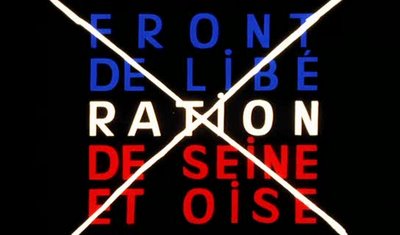
WEEK END messes around with title cards and jarring sound transitions in the manner of later films like FIRST NAME: CARMEN and EVERY MAN FOR HIMSELF. While his mouthpiece characters resist all forms of hegemony in word and deed, his picture and sound follow suit, refusing to cooperate with Hollywood’s soothing formal dictates. An absurdly long, xxx-rated monologue about a sexual threesome accompanies the ultimate stylistic sin: The camera zooms in and out at random while an ominous music cue drops out intermittently, senselessly. Might as well be gonzo porn scraps. But as the backlit protagonist in her underwear drones out the story to her lover, the effect satisfies neither a porn nor cinema jones. It’s just Godard being rebellious, nerd-naughty.
Later, he orchestrates an even longer shot tracking an endless traffic jam out of the Old Testament. All kinds of surreal and gory events pass through the frame in “real” time. All I could think of was the amount of money and manpower it must have taken to pull this silly scene off. Maybe that’s what Godard wants us to think about.

A child of the Nazi occupation of France, Godard has admitted to being a cinematic resistance fighter down to his socks. WEEK END is what happens when a resistance fighter sprays the machine gun so indiscriminately he kills even the thing he is presumably fighting for—in this case, true cinematic poetry.
01967: 105 minutes: dir. by Jean-Luc Godard: written by Jean-Luc Godard
Friday, October 13, 2006
The Flower of My Secret
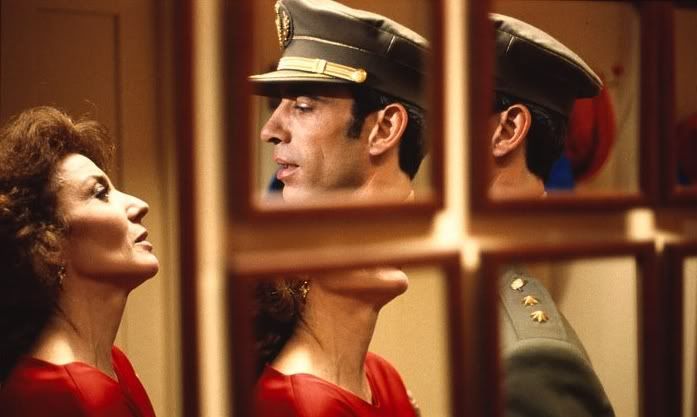
by Ryland Walker Knight
This is the first Pedro Almodóvar movie I have actively disliked. It was the only film from the Viva Pedro! series I had not seen that Netflix had to offer so I quickly queued it after having enjoyed his MATADOR so much. The romanticism is there, the palatte as vibrant as any of his recent works and plenty of humor from Chus Lampreave as yet another strong-willed, stubborn mother. Yet, for all that flair, I wasn't distracted from the cliche-ridden, hackneyed plotline. I know, all of his films have cliches and spin out melodramatic stories. However the other films spin those tropes around and attack them, sometimes schematically, but always to lend pathos to otherwise outrageous characters. None of that is present here. It's a slight work by a major filmmaker who seemed to have one or two great ideas for images (a rally against the university's president is gorgeous & hilarious in spite of the tears Leo tries to hide) but no good angles on his transparent plot to flesh it out. All we get is a committed performance from Marisa Paredes as Leo, a performance plummed from real hurt and anger but is, ultimately, a pain to watch given how trite and humorless her dialogue is written. Perhaps he was trying to make a movie like the romance novels Leo writes under the pseudonym Amanda Gris but that does not work either: an attempt to comment on how fiction can inform us, teach us, but there are no valuable lessons here, which is a shame. Manuela Vargas plays Leo's faithful housekeeper Blanca with another obvious secret and Joaquin Cortes is her complicit son, Antonio. By the time all truths are revealed, little else is except allusions to classics spoken out loud by the overly jolly Juan Echanove as Angel, Leo's editor and unlikely love interest. Do yourself a favor and watch Paredes in ALL ABOUT MY MOTHER to see her inhabit a far superior role tailored to her skills and personality, and where we first saw Pedro's ambition--and success--to elevate his characters above caricatures and cliches to a place where his meta textual aims hit their targets.
01995: 103 minutes: dir. by Pedro Almodóvar: written by Almodóvar
Monday, October 09, 2006
The Departed
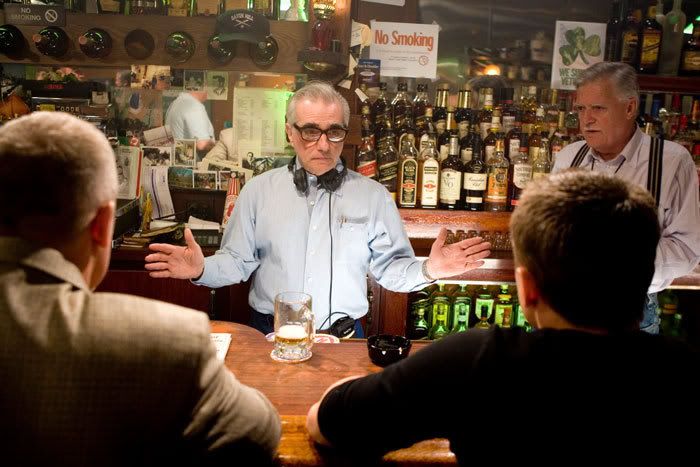
by Ryland Walker Knight
Remember when the first time you saw a Martin Scorsese classic and you nearly bounced in your seat giddy, grinning at the screen? It usually happened within the first five minutes: I love the Ronettes!; this city is grimey and disgusting--a real rain, yeah; pool is sexy; did you see how the camera moved in on him into the freeze frame? That sense of cinematic enthusiasm was sustained for the entire picture through to the climax, racing for that finish line you didn't want to see around the bend. Okay, not all the time. By the end of some you're worn out, ready to quit, checking your wristwatch. Even in GOODFELLAS you can feel the weight of the film by the end, all that nihilism and Catholic guilt like heavy drapery on your shoulders, its fringe dusting the floor. Some will argue similar slants against THE DEPARTED but I was thrilled for the entire running time, eager to watch it again as soon as the last reel slipped through the projector. In fact, I'm going back tonight.
Even if, like me, you haven't seen the original Hong Kong film INFERNAL AFFAIRS, you've seen elements of this movie before in nearly any cops and robbers picture. What you haven't seen is this kind of premise. We all know about the duality of men, cops and robbers in particular, but having them impersonate one another to infiltrate the other's world is as exciting an idea as imaginable. I know, there probably is another film outside these two with a similar plot (maybe another blind spot, SERPICO?) but this one is so slick it's easy to forget the past and dive in with our eyes open.
Matt Damon is the ostensible lead since we follow his Colin Sullivan from the first scene to the last, from wide eyed youth to dead eyed adult. His doppleganger, introduced shortly after Colin's youthful prologue, is Leonardo DiCaprio's anger management case, Billy Costigan. Both actors are groomed to look alike and often Scorsese will shoot them from the same angle in sequential scenes to hammer home this point of duality. It's obvious, yes, but like every stylistic choice in this film, an effective one: the pacing is perfect, the use of musical cues is just right (songs are repeated as character themes instead of scoring), and every line of dialogue from the top notch screenplay pops. There's never a dull moment and plenty of hilarious asides from Alec Baldwin (as dufus blow hard Captain Ellerby) and Mark Wahlberg (the ever-angry Staff Sargeant Dignam) to break up the bleak attitude with some comedic punctuation. The entire all star cast is great, including the old guys who work as father figures as well as Chief Good Guy & Evil Mastermind: Martin Sheen's performance as Captain Queenan is the least showy in the picture and helps balance his opposite, the one from all the ads, the one the bigs hope to lure you the paying customers in with, the big bad powerhouse that is Jack Nicholson. Jack doesn't just chew scenary in this picture, he's stuffing his face letting the juices drip all over his goatee. At this point in his career it's hard for Jack to play it straight, without irnoy, and it works for the most part to some truly funny ends in some sparklingly well acted scenes with DiCaprio. There's moments that remind you of the very unironic brilliance from, say, THE LAST DETAIL, but if you wanted a performance that played by the rules you came to the wrong show.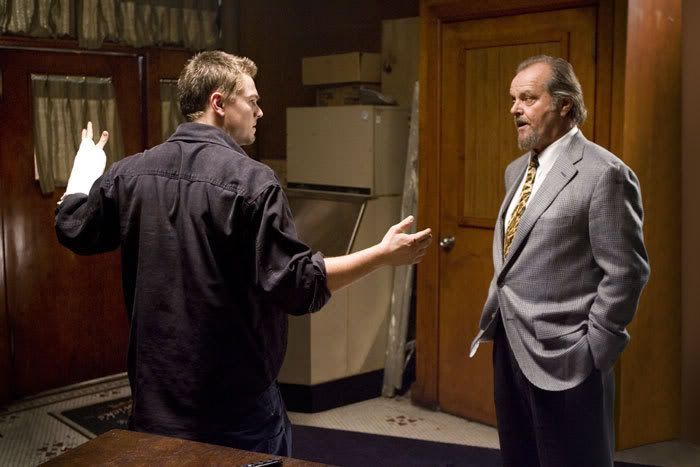
In a lot of ways it's as much a vanity project as either of Scorsese's two previous films yet this one has the deft screenplay those two lost somewhere in their endless re-writes. William Monohan uses an Irish background to sculpt his reworking of the orginial material and by keeping the Italian element out of the picture (but not the Catholic) Scorsese is set free to focus on perfecting his craft for the film at hand. His indulgences are a roving camera we've not seen as effective since KUNDUN and some of the best editing with Thelma Schoonmaker since their first collaboration, RAGING BULL: it's flashy but economic, like the film as a whole. It's also freed his actors and we finally get to see all those traits Marty's been hyping in Leo since GANGS OF NEW YORK was announced: poignant vulnerability, untapped ferocity, a believable man's swagger. Vera Farmiga has the unlucky role of the only female in the picture but her performance may beat all the men's, elevating her Madolyn above the plot device she may have been in the screenplay.
Above all it's entertainment the picture aims to provide and it certainly succeeds. It may be one of the most entertaining movies I've ever seen. And not just from a thrill-a-minute action standpoint: it's a thrill to see such skill in the end result.
02006: 149 minutes: dir. Martin Scorsese: written by William Monahan, based on a previous screenplay by Alan Mak & Felix Chong
Sunday, October 08, 2006
The pillow's drowning: Oh yes, we're drooling.
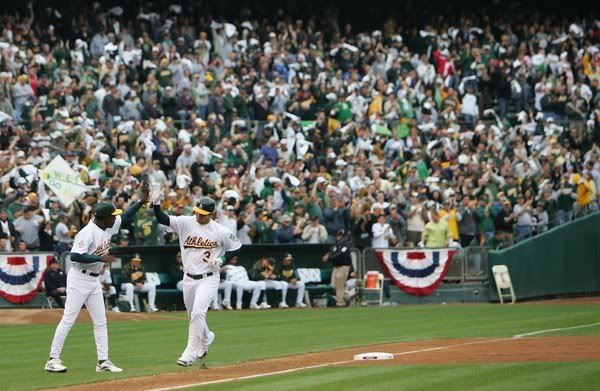
by Ryland Walker Knight
The American League Championship Series begins Tuesday night in Oakland. Yes, the A's came to play in the Divisional Series and swept the Twins. They played "mistake-free baseball" according to the Twins' catcher Joe Mauer, while the Twins made mistake after mistake. For me, it was a joy. I wear my hat with pride in these Seattle streets. I've been attracting a lot of attention, some distasteful but mostly congradulatory. Even from a devoted--and drunk--Minesota native who told me, "That Torii Hunter sure lost the game for them."
That much is true. We won with determination. The Twins fell apart. A perfect sweep never trailing at any point in the series.
But it's back to worrying because those Tigers out of Detroit are no baby cubs: they have fangs and claws and ferocity. The Yankees--and all the East Coast biased media--underestimated them and they paid the price. Their pitching staff reverted to its early season dominance and their offense never gave up, even in their Game One loss, always fighting, applying pressure. There's no doubt their fearless attitude is going to help a soaring confidence level.
But the A's are pretty happy right now, too. I just hope they aren't complacent. And from what I've read, that's not the case. Frank Thomas keeps grounding the kids after big wins and reminding them, "There's still more games, more series we got to win." The champagne's great but you gotta remember the big picture: The World Series.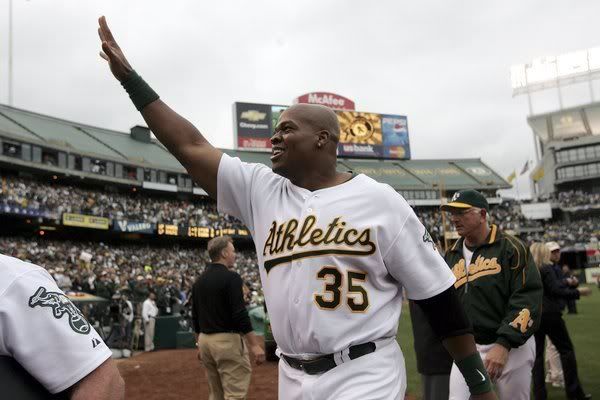
Manager Ken Macha rarely sleeps a full night. He's up early planning, working hard to prepare. His staff works hard too and this commitment has shone through his players this year. The team was banged up the entire season but always found ways to win. They got hot like always in the second half and showed they deserved to win the AL West. Frank Thomas has said this is the first club he's been a part of in 17 big league years that never had a squabble or prima donna moment--just a bunch of guys who love to play the game right. And that's what we fans have to count on: that diligence to play mistake-free, hard-nosed baseball until the final out. Because the Detroit Tigers have the same philosophy. There won't be an inch to budge.
But I can't stop grinning thinking about this match up. It's a pretty evenly matched series with a slight edge going to the Tigers for shutting down what, on paper, seemed like the best lineup to ever see the limelight in the postseason. But I think with home field advantage and an energized, devoted club eager to keep proving themselves the A's can win it in six. However, I'm sure there's a Tigers fan writing this same blog right now talking all about their monumental triumph. Should be fun. With fingers crossed and hat snug I wait patiently. Go A's!
Monday, October 02, 2006
Still drooling.

by Ryland Walker Knight
After a two-year hiatus (including a late-season stumble last year), the Oakland Athletics have won the AL West and are competing in the playoffs. I was pretty heartbroken following their last few flame outs in the postseason but my expectations were pretty high going into those series. This year I'm a little more realistic. And skeptical. The end of the season was a little distressing, to be honest.
Last week I attended the series opener against the Mariners here in Seattle. All they had to do was win and the A's would clinch their AL West title. And things started out great with a home run by Milton Bradley in the top of the first. Estaban Loaiza was even relatively effective. Then, in the 5th inning, with the A's up by six runs (9-3), the Mariners began to batter the A's bullpen. Going into the bottom of the 9th, the A's still lead by three but that apparently wasn't enough for the usually lights-out Oakland closer (and reigning Rookie of the Year) Huston Street. The Mariners tied the score and wound up winning the game. I was flabergasted, speechless as we exited.
The A's went on to win the series and clinch their pennant but their final series against the Angels was yet more dispiriting. They lost that series playing sloppy only to win the final game of the season. I must admit, my hopes for this playoff run are significantly less than in years previous. Especially drawing the Twins at home for the Division Series.
The Twins have been on a ridiculous tear, playing a Major League best 71-33 since June. They have the best home record in the Majors as well at 54-27. They also have the best pitcher in the game, Johan Santana, and the batting champ, catcher Joe Mauer, plus a serious MVP candidate in firstbaseman Justin Morneau. It's a tall order for a team with its best pitcher (Rich Harden) still recovering, its marquee player (Eric Chavez) enduring a trying year beset by injuries and a mediocre bullpen struggling down the stretch.
What the A's do have going for them is their best lineup since 2001, a better starting pitching rotation than the Twins and a lot of veteran excitement. At the top of their lineup, Jason Kendall and Mark Kotsay have never played in the postseasn and are quick to declare their own excitement. Frank Thomas is back on the big stage to prove himself once again after a season's worth of proof he's still dangerous and capable. But good will won't win ballgames. Timely hitting, good pitching and reliable team defense do win ballgames. Luckily, the A's have all three. But so do the Twins.
The one thing the A's have over the Twins is a key mental edge: when cornered, considered the underdog, the Oakland Athletics have routinely prooved they can rise up. Granted, that was always in the regular season, climbing the standings to the top by the end of the schedule. But that's part of that good will factor that won't necessarily push Oakland over the equalizing line.
For now I'm just hoping the A's make it intereting. I'm pretty much conceding game 1 against Santana since he never wastes a pitch and can take his excellent stuff deep into games, handing the ball to Joe Nathan, the best closer in the AL this year. But I think the A's could do some damage against the rest of the Twins' banged up and inconsistent rotation. But let's not forget Barry Zito is 2-1 with a 2.74 ERA in the postseason. If he can keep it close, maybe the A's will make a real push to put some pressure on the Twins early in the series. Maybe that way they can break their streak of exiting early and show the Yankees who's boss on the big ALCS stage. Having attended two Oakland wins in New York I know the A's can beat them. But first things first: make the Division Series interesting enough and don't give up. I can't help drooling about a possible win but I'll try wiping my mouth for now.
Saturday, September 30, 2006
Jackass: Number Two
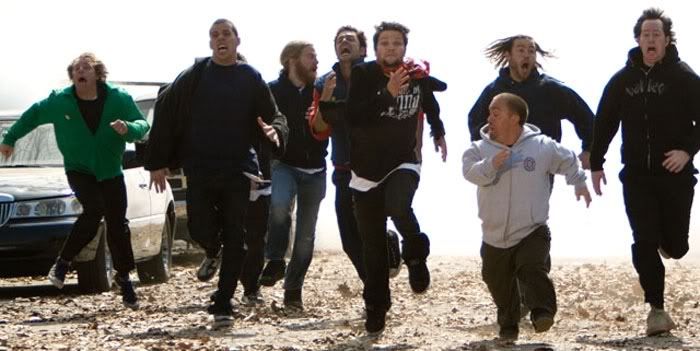
by Ryland Walker Knight
When the first JACKASS movie came out in theatres I had zero desire to subject myself to its stupidity and I still haven't seen it. In line for the sequel I was ready to abandon the plan. I thought, This is going to make me sick--I know it. But I was persuaded to stick with it ("It'll be funny!") and despite any weariness of watching so much vomit onscreen I might want to spew in my seat, I was too busy laughing for my gag reflex to take hold. For the most part. There's a couple sequences that made me avert my eyes but even those skits had my laughing seconds later. The movie runs 95 minutes and my stomach was taut for, I'd say, 92 minutes. Sometimes I was recoiling, shocked and appalled, but the absurdity kept me howling. There's a little slack in the middle of the movie and it ends a little late with a near-brilliant (yet mishandled) Busby Berkeley musical number but there's enough in there too keep you giggling and oblivious. And that's probably the best thing about the JACKASS brand: you never have to think, just laugh. The only thing I kept mental tabs on was how often the cast was naked, or close to. They're a close knit bunch of ridiculous adrenaline junkies getting paid ridiculous salaries to risk death and mutilation for laughs, often at one another's expense. Its immaturity and plain idiocy is easily forgotten, though, once those laughs start piling up in this oddball monster movie that, in the end, is some kind of masterpiece.
02006: 95 minutes: dir. Jeff Tremaine: "written" by Sean Cliver and Preston Lacy
Tuesday, September 26, 2006
Femme Fatale
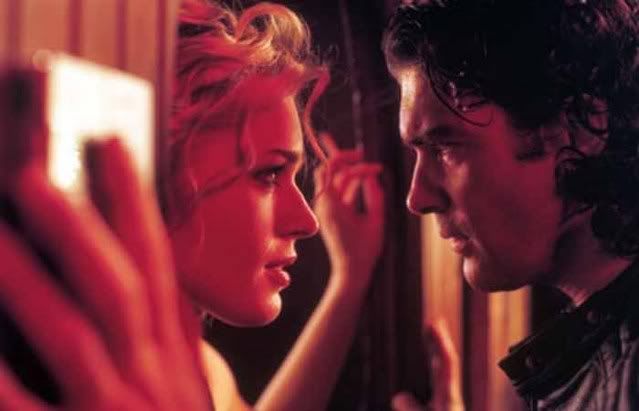
by Ryland Walker Knight
Brian DePalma's no slouch. His career as a film director has produced a few great films and a lot of flashy filmmaking across his filmography--even in lesser, uneven pictures. Those films that don't quite work are dismissed in facile workaday reviews as rip offs of his obvious idol, Alfred Hitchcock. Only recently has DePalma received his own auteur label, complete with theory applied so thick you almost forget how middling that movie was you just watched. Yes, I'm talking about a few, choice critics' wild praise for the scatterbrained and briefly sparkling mess that is THE BLACK DAHLIA. (David Edelstein says it best "even with the movie’s won’t-shut-up narrator I didn’t know what was going on.") But I could also be talking about the roundly appreciated, generally well reviewed film he made just prior, FEMME FATALE.
Brian DePalma can move the camera. He's a conductor, really, orchestrating elaborate set-pieces because he's having fun. He's not a writer. FEMME FATALE was the first picture he directed in a decade from a screenplay he had written. I agree with Jonathan Rosenbaum in that it appears DePalma "set out to combine every previous thriller he'd made in one hyperbolically frothy cocktail." All the cranes, split frames, slow motion and po-mo duality/doppelganger themes we've seen before. It has everything but a leading lady to fill those big boots the title character has to wear around town.
In the flamboyant, formalist world of FEMME FATALE it shouldn't matter that Rebecca Romijn isn't the most talented performer, but that she should demand attention. A former model, Romijn has a typically beautiful model's face and lithe, toned limbs but she never projects the sex appeal and danger required for a role such as this. In the first scene, Romijn's Laure is watching the climax to Billy Wilder's DOUBLE INDEMNITY and we watch, for a minute of so, Barbara Stanwyck convey more magnetism than Romijn will during any of her dialogue-driven scenes. I think that's the problem: Rebecca Romijn's voice has too much model in it, not enough movie star, and all I hear is petulance. I never believed this woman was manipulating this world that much.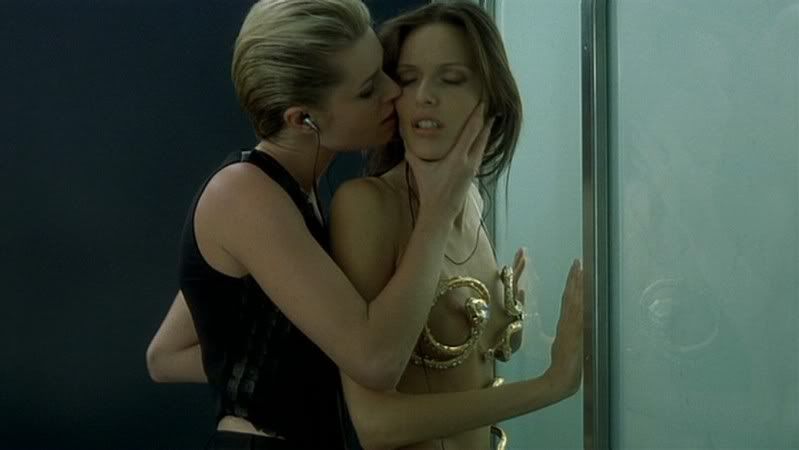
The only manipulation on display is DePalma's unrestrained play with film, from Laure's first (mute) scene to the last freeze frame. The film opens with a ludicrously fun heist sequence complete with lesbian make out, piss electrocution and a pitch black, night-vision escape. It's the high point of the film. DePalma is giddy, showing off and making an easy joke about the festival goers groping for something to hold onto in that enveloping darkness. Sight, and voyeurism in particular, is always a crucial element in DePalma's bag of filmic tricks--right up there with doubling--so it's no surprise that Laure snakes her way out of the heist amongst all those blind festival goers. (Here's where those theory-mad disciples go nuts all over their keyboards.) Romijn may be the star onscreen but really the show belongs to DePalma. And from that angle, this is a great film, full of vigor and excitement: sheer cinematic joy at work. However, it's hard to ignore such an underwhelming figure at centre of such ecstatic filmmaking. No, it cannot hold, and Rosenbaum agrees again: "I realize that De Palma's thrillers are commonly regarded as emotional rather than cerebral, but I'd question how emotional one can be about characters one only halfheartedly (quarter-heartedly?) believes in."
Antonio Banderas plays semi-retired paparazzi, Nicolas Bardo (sorta like Boudu but he's really doing the saving, in the end), who's working on a mural of photographs depicting the square his enviable Paris apartment overlooks. He takes a picture of Laure twice, the first a random snapshot without consequence--a minor annoyance for Laure--yet the second one gets him entirely too involved in her hairbrained scheme to free herself not only of a boring diplomat husband (serviceable Peter Coyote) but the men she double crossed during the opening heist. Banderas is also having fun, giving us, probably, his best English-language performance in more than a decade. He almost makes up for the cypher that is Romijn. But then, when the flip-your-lid reveal of the last act pops up to burst your noirish bubble, you have to wonder why were we given him as our only emotional connection to the characters. It's to show you, the audience, you're the patsy, too, by falling for DePalma's machinations all over again. If you surrender to FEMME FATALE you may be no better off than Banderas, drawn in by some flashy camerawork and pretty pictures left hanging in freeze frame, befuddled by something cryptic Rebecca Romijn has said trying to charm you. You know better, don't you? Go finish that mural.
02002: 114 minutes: dir. Brian DePalma: written by DePalma
Thom Yorke: A Scientific Lyric Study
 by Michael Strenski
by Michael Strenski
Like any human being with a smattering of intelligence, I am an avowed Radiohead fan. Me and the band go way back. My earliest Radiohead recollection is of repeatedly listening to "Creep" from a cassette copy of the "S.F.W." soundtrack on my Walkman while riding my skateboard in the suburbs. I was wearing a ridiculous Sonic Youth beanie with a pom-pom on top of it. Welcome to the mid-90's.
I had Pablo Honey but I didn't really come on board until the Bends and the "Pulp Fiction" rip-off of a video for "High and Dry" that MTV played incessantly. Since then I have purchased each new Radiohead release (including EP's, but not singles or imports) on the day they came out, usually at 10am. When OK Computer was released I picked it up from Tower, went home and took a shower before listening to it so I would be as clean and pure as possible for that first experience. Very few bands elicit such rituals. I have since been willing to follow the band into any weird direction they decide on heading. Kid A was initially a struggle, most of which I blame on the mountains of press I devoured before its release telling me that it would be difficult. Nowadays it rests quite unchallenged at the top of my Radiohead list.
Flash forward to a week ago when "Atoms for Peace" came on the iPod shuffle. At this point I had owned Radiohead frontman Thom Yorke's solo album, the Eraser (that "Atoms for Peace" appears on) for two months already, and only listened to it in its entirety twice. I had simply not felt compelled to put it on, unlike every other Radiohead-affilated album. When played individually I enjoyed the songs, but on the whole the album seemed incredibly one-note and repetitive. I blame the instrumentation for that. The entire album features nine songs consisting of skittering electronic beats, treated piano and bass. That's it, save Thom's incredible voice. There are beautiful melodies and interplay between these sparse elements but it hasn't struck me as a compelling listen.
My biggest hang-up with the album is that it contains some of the worst lyrics I have ever heard. The biggest offender is within track six, the aforementioned "Atoms for Peace". At one minute and fifty-five seconds into the song Thom sings quite earnestly, "peel all of your layers off/I want to eat your artichoke heart." What the....??? Is this is a joke? How could anyone that's not a hormone-addled teenager write those lyrics with a straight face, let alone sing them? Much has been written about Thom Yorke's shortcomings as a lyricist, but until this album I had never really thought he was terrible. In fact, there are a lot of his lines that I truly love.
The more I thought about it it seemed that over the last decade of releasing records, Thom's lyrics have shifted away from more poetic wordplay to bare confessional lines, usually repeated over and over for emphasis. Now, a shift in lyrical style is not necessarily a bad thing. Since I was merely hypothesising at this point, I decided to conduct a scientific study on what I would call the Degeneration of Thom Yorke's Lyrics. Were his words in fact, getting worse? I decided that because the most offensive lyric to my taste appeared at one minute fifty-five seconds into track six on the album, I would study the lyrics on previous albums that appear at this moment. Below are my thoughts, results, and overall observations about the lyrical world of Mister Thom Yorke:
"Where I end and where you start
Where you, you left me alone"
-"Where I End and You Begin" from 02003's Hail to the Thief
This lyric is pretty self-explanatory and falls into the bare bones-style I mentioned above. With the music and producton, the lyrics manage to effectively convey the loneliness that the singer inhabits.
"Look into my eyes
It's the only way you'll know I'm telling the truth"
-"Knives Out" from 02001's Amnesiac
Right before the above lines are sung Thom claims that "if you'd been a dog, they would have drowned you at birth." Ouch. Harsh words to say the least, made all the more convincing by this simple line that follows. There is not much to these words but for some reason I find them really great.
"This one dropped a payload
Fodder for the animals
Living on animal farm"
-"Optimistic" from 02000's Kid A
The "one" mentioned here is the last in a group of ones that brings to mind the "this little piggy" game played with children's toes. This one is definitely the most sinister of the group. All in all a quite effective line.
"I've given all I can
But we're still on the payroll"
-"Karma Police" from 01997's OK Computer
This really surprised me. "Payroll" and "payload" appearing at exactly the same spot on the same track on two different albums? Kid A in a lot of ways was a comment on the phenominal critical success of OK Computer. Could the band have actually meant for this to sync up? It is highly unlikely but an interesting coincidence nonetheless. The payroll in this song is in fact not monetary but the karmic one. The character tries to do as much good as he can but continues to receive trouble.
"Nice dream
nice dream
nice dream"
-"(nice dream)" from 01995's the Bends
This is the chorus to one of the most exquisite in the Radiohead canon. On paper it doesn't amount to much, but sung repeatedly over a very gentle melody, it is just wonderful. Also it is the name of a Cheech and Chong movie. Another coincidence?
"Grow my hair
I am Jim Morrison"
-"Anyone Can Play Guitar" from 01993's Pablo Honey
Even if I had been trying to stretch my logic to maintain my original hypotheses about the degeneration of Thom Yorke's lyrics this puppy would have sunk that ship. Who the hell would want to be Jim Morrison? Not I, sir. This without a doubt proves my initial theory wrong. Thom Yorke has been producing clunkers among the passable lines and occasional gems since the beginning. This leads me to an even more interesting idea for an experiment:
Who the hell listens to Radiohead for the words?
Monday, September 25, 2006
Viva Pedro: Matador

by Ryland Walker Knight
Sony Pictures Classics is earning mega points this fall by touring 8 new prints of 8 of Pedro Almodóvar's finest films. This unlucky guy only got to see one, MATADOR, but boy was it fun. Released in Spain in 1986 it is the earliest of the series despite its American release two years later in '88. Many critics have bemoaned Pedro for classing it up and going mainstream with a few movies about trannies, pedophilia, necrophilia, HIV-positive nuns finding out they're pregnant and plenty of sweaty gay sex. They've said he's tamed himself, and that's true, to an extent, but the major difference I can see between his 80s films and this recent string of excellence is his writing has matured. The 80s films are all just as lively and colorful yet their characters are not as fully formed: he's developed an uncanny ability to turn a melodramatic archetype into a poignant character study. In MATADOR, for example, we have all the familiar caricatures but none of the emotional depth found in, say, TALK TO HER.
Antonio Banderas plays Angel, a naive young man eager to rebel against his Opus Dei mother (a hilariously oblivious Julieta Serrano) and become a bullfighter because, he says, he is "drawn to danger." He takes classes from Diego (Nacho Martinez), a matador forced into retirement after a brutal goring limited his mobility. When Diego asks Angel if he is homosexual, Angel explodes and declares he'll prove he's not gay. Later that evening he attempts to rape his next door neighbor Eva (Eva Cobo), who also happens to be Diego's girlfriend. However, it's all wrong: Angel can't open his Swiss Army knife to threaten Eva and can't pull her panties down before prematurely ejaculating between her legs. A thunderstorm begins as Angel slides off Eva and apologizes. Eva stands up, straightens herself and slaps him. Turning to go, she trips and falls to the ground, cutting her temple. At the sight of blood, Angel faints, alone in the rain.
Here, the scene is the blackest humor, nearly slapstick, all nerves and pratfalls but one imagines the scene might play earnest in a later film; in TALK TO HER we're horrified when Benigno rapes the comatose Alicia. Risk and consequence are very much at play in MATADOR nevertheless. According to Diego, "not to kill is to die" for him now that he has been forced to leave the ring. Diego finds a kindred spirit in Maria (Assumpta Serna) who, fascinated by matadors--and Diego in particular it seems--has been seducing men and killing them during sex with a deadly hairpin to the back of the neck. She also happens to be Angel's lawyer once he impulsively confesses to her murders as well as two others strangely linked to him through his class under Diego.
With all the coincidences piling up, it would be easy to dismiss the writing as a series of cheap, fortuitous devices were it not for Almodóvar's direction and the great acting by his cast until he takes it one step further than I had expected. That's where he genius lies, I think: finding that line to step over and leap across. It's a tricky proposition that many directors fail at (the most recent example is DePalma's BLACK DAHLIA) but Almodóvar's heedless love of movies and expert melodrama raises his pulp to art.
Being a relative neophytic world cinema fan (I discovered Pedro just prior to TALK TO HER's stateside release), it's a wonder to slowly discover all the foreign sources many successful American directors steal from and remember they, too, were borrowing and re-inventing American movies that came before them. Almodóvar tips his hand when Diego and Maria meet in a movie theatre at the climax of King Vidor's DUEL IN THE SUN, wherein Jennifer Jones and Gregory Peck kill each other, and all four characters on screen are smiling. And despite the depravity onscreen throughout any of Pedro's films I always find myself joining him, celebrating all things cinematic and beautiful. I don't think MATADOR can compete with his later, "tamer" movies on an emotional level but as far as sheer entertainment goes, you won't be disappointed by any of the plot's unlikely and abrupt twists and turns and stabs in every direction imaginable but impossible to predict. Except that last one.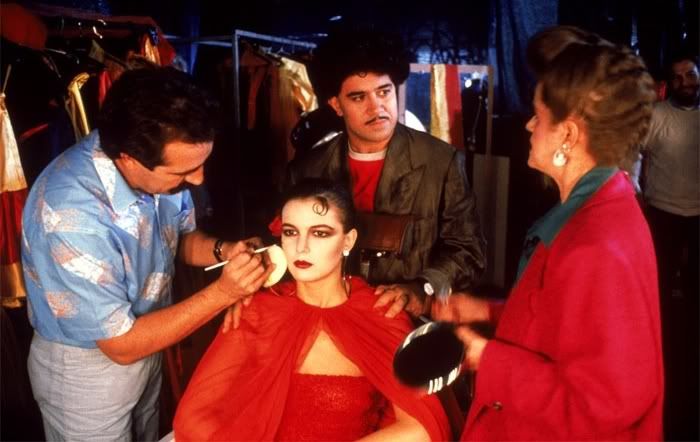
(Check out the sweet stache on Pedro, flanked by Eva Cobo & Chus Lampreave, plus make up dude)
01986: 110 minutes: dir. Pedro Almodóvar: written by Almodóvar & Jesús Ferrero
